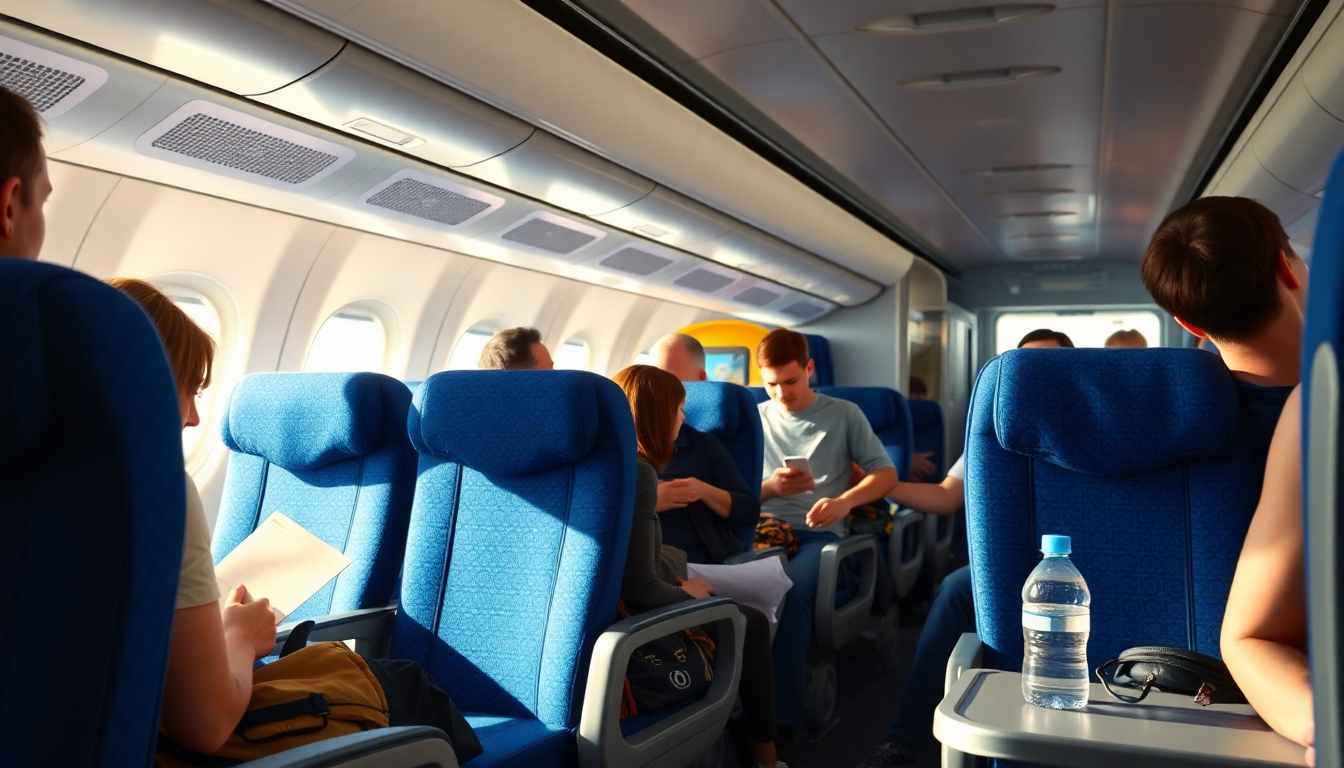Table of Contents
Air travel is often thought of as a shared public space where we all follow certain social norms to keep things comfortable for everyone. But what happens when those boundaries are crossed? A recent incident on a JetBlue flight from New York to Florida has sparked a debate about what constitutes acceptable behavior in tight quarters.
Let’s dig into what happened, the legal fallout, and what it all means for our society.
The Incident: What Happened on the Flight?
On a Saturday morning, things took a wild turn aboard a JetBlue flight when a couple from Connecticut caught the attention of both flight attendants and fellow passengers.
Reports indicate that 43-year-old Trista Reilly was spotted engaging in explicit behavior while sitting on the lap of 42-year-old Christopher Drew Arnold. To make matters worse, children were present during this incident, prompting a concerned mother to notify the crew.
As the situation escalated, the children confirmed the mother’s observations, leading to the couple’s arrest immediately after landing at Sarasota Bradenton International Airport. They faced serious charges of lewd and lascivious exhibition, particularly due to the presence of minors, highlighting the gravity of their actions in such a public setting.
After their arrest, both Reilly and Arnold were briefly taken into custody but were released shortly thereafter. Incidents like this not only disrupt the flying experience but also raise critical questions about personal conduct and the enforcement of laws aimed at protecting public decency.
Legal Implications of Public Decency Violations
Public decency laws exist to maintain a standard of conduct in shared spaces, including airplanes. The actions of Reilly and Arnold, as outlined in police reports, clearly fall into the category of lewd conduct, which is illegal in many areas, especially when minors are involved.
This incident acts as a stark reminder of the legal consequences that can stem from public indecency.
These laws are designed to safeguard individuals, particularly children, from inappropriate exposure. The charges against the couple reflect a wider societal agreement that such behavior is simply unacceptable in public spaces, including on commercial flights. The swift response from the flight crew and law enforcement underscores the importance of vigilance in upholding these standards.
The incident also raises questions about the steps airlines can take to prevent inappropriate behavior. Would enhanced training for flight attendants and clearer policies on passenger conduct help create a safer travel environment? It’s certainly worth considering.
Broader Societal Considerations
This incident isn’t just a breach of public decency; it also highlights a cultural challenge regarding what is deemed acceptable behavior in public spaces. As society evolves, so do our expectations for how we should act around others. With everyone carrying smartphones and sharing experiences on social media, public behavior is under more scrutiny than ever before, amplifying the consequences of such incidents.
For Reilly and Arnold, the immediate legal repercussions sparked discussions about the need for respect and mindfulness in shared environments. It’s vital for individuals to understand the ramifications of their actions, especially when they’re in close quarters with strangers.
Ultimately, this incident serves as a cautionary tale about the importance of maintaining decorum in public settings. As air travel remains a critical mode of transportation for many, it’s vital for passengers to stick to established norms to ensure the comfort and safety of everyone on board. So, the next time you’re on a flight, think about how your actions affect those around you—because we’re all in this together!





